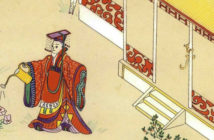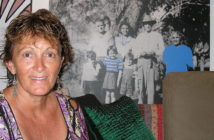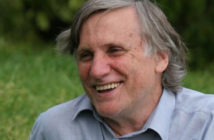You have probably never heard of Roderick Hunt, but he is the author of one of the most successful series of children’s books in history. Together with illustrator Alex Brychta, he developed the Oxford Reading Tree as a reading scheme for British schools, but unlike the tedious repetition of earlier such schemes, the Magic Key books are characterized by humor, charm and adventure. Now, 30 years on, children in over 140 countries have learned to read with the help of Biff, Kipper, and Chip, and their family and friends.
Hunt and Brychta are visiting Beijing this week, and are speaking to an invited audience at the British School of Beijing Sanlitun (BSB Sanlitun) on Saturday, May 13. We caught up with Hunt and spoke to him exclusively about his life and work.
Did you learn to read from a reading scheme? If so, which one, and how did you feel about it?
Yes. I learned to read on a scheme called Beacon Readers. I was very slow to start with. For my sixth birthday a rather fierce aunt (called Auntie Marion) gave me a book. It had no pictures. Just pages of black print. She commanded me to read a page in front of all the adults. I tried but the book was too hard and she gave a loud ‘tut’ and a sigh and said in an icy, withering voice: “Can’t you read, yet, Roderick?” I felt really humiliated and had to try hard not to cry. So at school I picked up a Beacon Reader – the story called “Billly Goats Gruff,” and saw the sentence “Trip-trap, trip trap over the rickety bridge.” I realized the “ck” was part of the word rickety and that meant “bridge” came next so I could then work out the rest of the sentence. From that moment my reading took off and I read as many books as I could get my hands on!
What books did you read as a child? How did they inspire you?
There were not many lovely picture books when I was a boy but I read quite long, weighty stories such as the Biggles books, Treasure Island, The Last of the Mohicans, Swiss Family Robinson and so on. Luckily, as I read, I see pictures in my mind and I have such a strong visual mind that I even see words and sentences as pictures, so when I read I have a kind of film running in my brain!
My children read your books for pleasure – I can’t imagine anyone doing that with any other reading scheme. How do you manage to create such appealing characters and interesting stories with a limited vocabulary?
A great deal of the appeal is that Alex and I work together so when I have drafted a story I meet him and he draws the rough sketches. That way much of the story is told through the pictures. The pictures act as the vehicle or an extension for the feelings, reactions, subplots, impending events and so on that occur in the story.
Are the characters based on anybody you know? What about Floppy, is he based on a real dog?
No, they are all entirely figments of my imagination, but their characters have grown based on a build-up of so many stories – like a soap-opera. Gradually the character takes on a life of their own,
Did you have much involvement in producing the TV series? What was it like hearing your creations speak?
I’m afraid Alex and I hadn’t much control over the TV series. We wished it could have been a lot different! Enough said!
Your books have been read by millions of children worldwide, but you don’t have the fame of someone like JK Rowling. How do you feel about that?
I’d rather be as anonymous as I am and I’m glad I am not much in any spotlight other than the one which shines a light on my passion to enable children to become literate, to love books, and to be effective, critical life-long learners. (That sounds a bit high-flown, but I hope you know what I mean).
Together you’ve written over 400 books – which is your favourite?
Do you have plans to do anything different in the future? Any books or projects other than the ORT?
I’m slowly trying to write a novel! I need to get on with it. At my age, I’m running out of time!!
Photos: courtesy of OUP





1 Comment
I adore Roderick Hunt’s books! I loved listening to my children read them. We all enjoyed the illustrations and humour Roderick and Alex provide too. Actually, my youngest, who is six, is reading them. He’s just finished Green Island which I was thrilled and amused by as there are references to Barking and Dagenham, where I grew up as a young child. The book shows a picture of the Barking Echo local paper…one of the headings reads “Barking woman wins at dog show.” Brilliant! Another book called “Spots!” (I think) shows the dad in bed with chicken pox and on the tray next to him is The Dagenham Post local paper. So, as well as Fords, and the women’s movement regarding equal pay for women at the Fords Plant (where my Grandad worked) and a visit from Ghandi in the 1931 at Kingsley Hall , Roderick Hunt has also put my home town of Barking and Dagenham on the map!